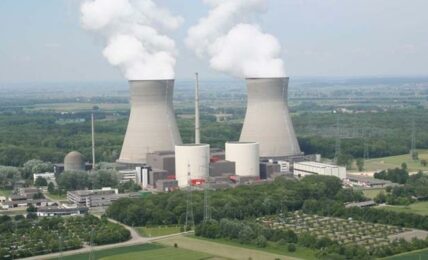The UK government’s Department for Energy Security and Net Zero announced today the publication of CCUS Vision, setting out its plan to establish the UK as a global leader in carbon capture, usage and storage (CCUS).
Key aspects of the plan include ramping up CCUS in the UK to at least 20 million tonnes of CO2 by 2030, and to create a competitive, self-sustaining CCUS market in the UK from 2035.
Carbon capture and storage forms a key part of the UK’s strategy to achieve net zero emissions by 2050, most notably as a solution to enable emissions reductions from emissions-intensive and difficult to decarbonize industries, such as steel, cement and chemicals. The new publication follows the allocation announced earlier this year in the UK budget of £20 billion to support the early development of CCUS technologies.
In addition to its contributions to industrial decarbonization, the new CCUS Vision also highlights opportunities for the UK to capitalize on its unique geology, infrastructure, capabilities, and North Sea storage capacity – estimated at 78 billion tonnes of CO2 – to offer storage services to other countries. Overall, by developing CCUS into a “national asset,” the plan envisions boosting the economy by £5 billion annually by 2050.
UK Energy Security Secretary Claire Coutinho said:
“Thanks to the UK’s geology, skills and infrastructure, we are in a unique position to lead the way on carbon capture technologies.
“That is why we’re making one of the biggest funding commitments in Europe on carbon capture that will cut emissions from our atmosphere, while unlocking investment, creating tens of thousands of jobs and growing the UK economy.”
The new plan outlines the development of a CCUS market in the UK following 3 stages, including “Market Creation” through 2030, requiring high levels of government support while establishing 4 storage clusters, supporting the initial CCUS deployments across sectors, and developing carbon transport capacity; “Market Transition” between 2030 and 2035, with an emerging commercial and competitive market developing as costs decline with maturing CO2 transport networks and technological developments reducing the need for government support, and; “Self-sustaining market” from 2035, in which market conditions allow for a self-sustaining and competitive CCUS market.
Alongside the publication of the CCUS Vision, the government also announced a series of updates on the development of its carbon storage clusters, including an agreement on the initial commercial terms with the Northern Endurance Partnership (NEP), the CO2 transportation and storage company which formed to deliver onshore and offshore infrastructure for the East Coast Cluster in Teesside and the Humber, and plans to accelerate the process to set up and identify suitable capture projects for two new clusters announced earlier this year.
Energy Efficiency and Green Finance Minister Lord Callanan said:
“We need pragmatic answers to the carbon challenge, and with our infrastructure, skills and geology, the UK is in pole position to take advantage of game-changing carbon capture and storage technology.
“Today we’re publishing a blueprint to deliver a world-leading UK carbon capture industry, so that we have a competitive market in this exciting new technology by the middle of the next decade.”



